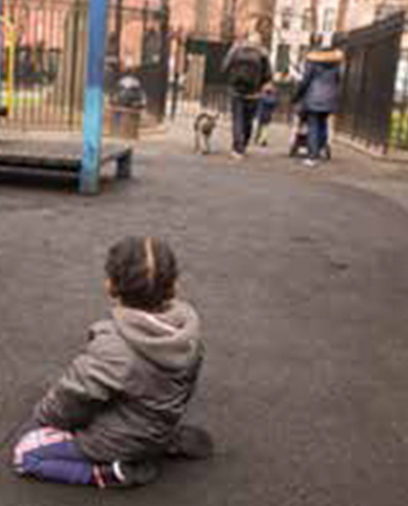
Child left behind
On Friday, the New York Times published a story highlighting the impact of ACS’s heightened scrutiny of parents in NYC’s poorest neighborhoods, the increased number of children now being removed from home, and the struggle families face repairing the damage when children enter foster care unnecessarily.
In the first quarter of 2017, requests for removals were up 40% over the same time last year, the Times reported. Many children are returned within days or weeks; nationwide, nearly 10% of children are removed from home for 30 days or less. Yet even short removals leave a lasting mark.
Parents in poor communities feel that their children can be taken at any time and for any reason, and fear reaching out for help during a crisis. As Piazadora Footman wrote in Rise’s fall issue on investigations, “It seems like I’ve been afraid of child protective services all of my life.”
Rise’s Jeanette Vega explained how this culture of fear prevents parents from seeking help when they need it most. “When we are investigated, we don’t expect it to be fair. So when we hit a crisis, our fear keeps us hiding under a rock. “
Parents have long called on child welfare agencies to make it safe to reach out for help and, according to ACS, only 2% of parents who seek out preventive services have had their children removed. However, the wave of heightened investigations, court ordered-supervision cases and removals since Zymere Perkins’ death in October has left families and communities in fear. Citywide, one in five children comes to the attention of the child welfare system. Most of those families live in just 8 community districts—Brownsville, Concourse/Highbridge, East NY, East Tremont, Hunts Point, Morrisania, Mott Haven, University Heights.
Foster care placement and even investigations are terrifying for children and cast a long shadow on families. “I still get nervous,” said Maisha Joefield, one of the mothers profiled in the Times article.
Another mother, Colyssa Stapleton, spoke of all she missed in a year of her child’s life: “She didn’t take her first steps around me, so I missed that. Her first tooth, I didn’t get to see that,” she said. “I don’t think anybody should be robbed of those things unless they really deserved it.”
RESOURCES FOR FAMILIES
Rise empowers parents to navigate the child welfare system. The first step is knowing your rights during an investigation.
If you are asked to attend a Child Safety Conference, read this guide explaining how to prepare.
Rise’s booklets can help you understand the services professionals are discussing, such as preventive services, parent-child therapy, addiction treatment, domestic violence counseling, or mental health treatment, as well as your legal rights when facing the child welfare system.
We also have special booklets for fathers and for Spanish-speaking parents.
If your child is placed in foster care, Rise’s TIPS on visiting offer guidance in making the most of visits so that your child is more likely to return home.
Rise’s workbook on reunification can help you rebuild your family life after foster care.
